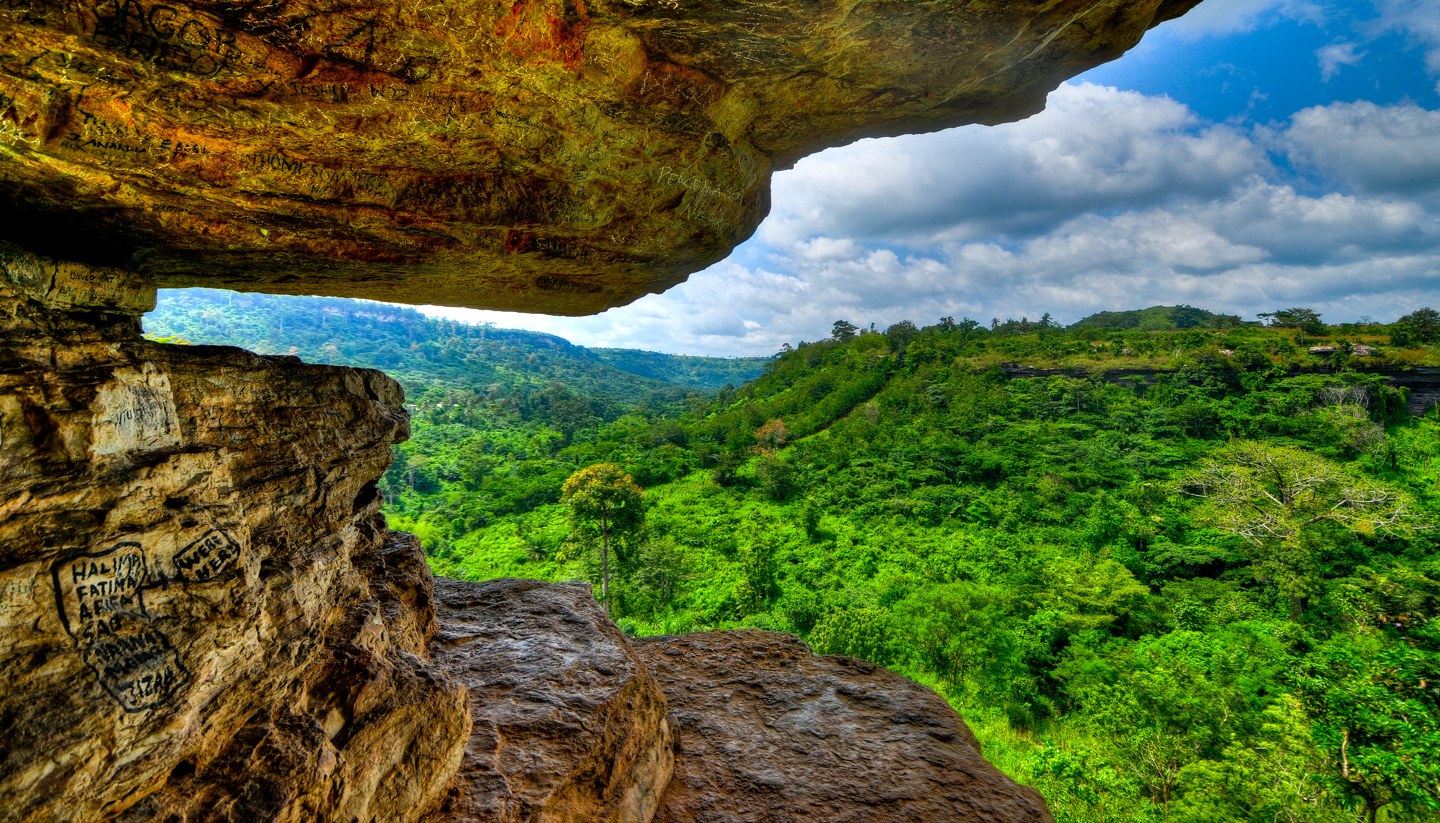Getting Around Ghana
Air
Road
Ghana's road network consists of well-maintained highways and rougher secondary roads, reflecting the country's ongoing development efforts. Ghana's primary road network is relatively extensive and connects major cities like Accra, Kumasi, and Takoradi. Highways such as the Accra-Kumasi road and the Accra-Tema Motorway are key arteries and are generally in good condition.
Tips for travellers include:
• A 4x4 vehicle is highly recommended for rural areas and national parks.
• Carry a spare tyre and tools, as roadside assistance services are limited outside major cities.
• Be cautious during the rainy season, as flash floods can make some roads treacherous or impassable.
Side of the road
RightRoad Quality
Urban roads are generally in good condition, but once you move off the main highways, road conditions can vary significantly. Secondary roads are often unpaved and may be poorly maintained, with potholes, uneven surfaces, and dirt tracks being common.
Car Hire
Car hire services are readily available in major cities like Accra, Kumasi, and Takoradi. International rental companies such as Avis and Hertz operate in Ghana, alongside local companies offering competitive rates. Many car hire companies offer vehicles with drivers for an additional fee. This option is highly recommended if you are unfamiliar with local driving practices or plan to travel extensively in rural areas.
Taxi
Licensed taxis in Ghana are identifiable by their yellow and orange paintwork and display a valid registration sticker on the windshield. Negotiating fares (before the journey begins) are the norm, hence most taxis in Ghana are not metered. It is important to agree on the price upfront to avoid disputes later.
Ride-sharing apps (Uber, Bolt, and Yango) are available in Accra, Kumasi and Takoradi. These services calculate fares based on distance and time, eliminating the need for fare negotiation.
Coach
Long-distance buses and coaches in Ghana are a reliable and budget-friendly way to explore the country.
State-owned operators are State Transport Corporation (STC), one of the most reliable long-distance bus services in Ghana, and Metro Mass Transit (MTT), which caters primarily to locals.
Private operators that offer premium coach services with air-conditioned buses, onboard entertainment, and comfortable seating include VIP Jeoun Transport and OA Travel and Tours.
Regulations
Drivers and passengers should wear seatbelts. Drivers should stay vigilant in busy urban areas where motorbikes (locally known as "okadas") often weave through traffic.
Speed limits vary by location – usually 100 km/h (62 mph) on expressways, 80 km/h (50 mph) on highways, and 50 km/h (31 mph) in urban areas unless otherwise indicated.
Vehicles should have a spare tyre, fire extinguisher, warning triangles, and reflective jackets.
Ghana has a strict drink-driving law, with a blood alcohol limit of 0.08%. Penalties for violating this law include heavy fines or imprisonment.
Documentation
Foreign drivers should have a valid licence or an International Driving Permit. It is important to check that your car is roadworthy and has valid insurance and registration. An ECOWAS Brown Card is required for cross-border travel within West Africa.
Urban travel
Cities in Ghana, including Accra, have extensive bus and taxi services operated by both the public and private sectors.
Yellow-and-orange taxis are abundant in towns and cities, and prices are generally reasonable. Drivers do not typically expect tips, but visitors are advised to negotiate fares before the journey begins. In some cities, ride-hailing apps such as Uber, Bolt, and Yango are available, offering reliable and affordable transport with fares calculated directly via the app, eliminating the need for negotiation.
Minibuses, commonly known as tro-tros, are widely available in cities, towns, and villages. Operating on fixed routes, they are extremely cheap but often overcrowded and confusing for first-time visitors.
Motorcycle taxis, locally referred to as Okadas, are usually unregulated. While they are fast, cheap, and manoeuvrable in traffic, their use is not recommended for visitors unless absolutely necessary.
Business travellers and families may prefer private car hire with a driver, an option offered by many car rental companies in Ghana's major cities. This provides comfort, flexibility, and convenience, especially for those unfamiliar with local driving conditions.
Travellers should plan ahead, as rush-hour traffic in cities can be heavy. Additionally, most transport options require cash, so it is advisable to carry small denominations.
Rail
While Ghana has a railway network, it is currently limited in scope and functionality, making trains less practical for most travellers. However, the ongoing modernisation efforts could make train travel a more appealing option in the future.
Current train routes and services include Accra to Nsawam, and Takoradi to Tarkwa.
Water
The Yapei Queen, a lake steamer, runs once weekly across Lake Volta between Akosombo and Yeji. Ferries connect at Yeji for Buipe and Makongo, both from which onward transportation to Tamale can be arranged. Please confirm the latest schedules and booking procedures on https://www.vra.com.


